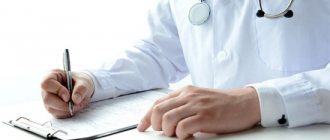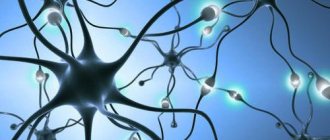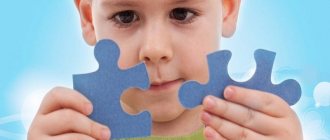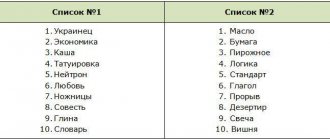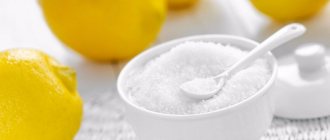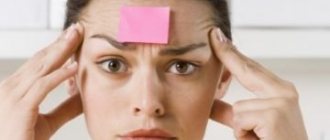An acute form (characterized by a sudden onset) disturbance of blood circulation in the brain tissue, called stroke pathology, is often accompanied by loss (temporary or permanent) of memory (so-called amnesia). At the same time, quite often, memory loss can occur immediately after the detection of primary symptoms of stroke pathology, and sometimes on the second or third day after the patient is admitted to hospital treatment.
Cerebrovascular accident
The mechanism of memory loss in this emergency condition is quite simple.
Since stroke, as a disease, is caused by the development of cerebrovascular pathology with deviations from the physiologically normal blood supply to certain areas of the brain, this condition can lead to some disorders associated with the responsibility of the affected areas of the brain.
For example, if after a stroke the speech center of the brain is affected, the victim will experience certain speech disorders.
If the pathology affects the part of the brain responsible for our memories, the victim may experience corresponding disorders.
Causes of stroke complications
The brain has two cerebral hemispheres:
- Right - responsible for maintaining the functioning of the left part of the body, which controls emotions, imagination, and processing of information received visually.
- Left – controls the functioning of the right side, which is responsible for logic, correct determination of sequences, and the formation of cause-and-effect relationships.
With a healthy circulatory system in the brain, the hemispheres work harmoniously - they fully complement and support each other. At the same time, they consume oxygen and other nutrients in the same volume.
During a stroke, the nutrition of a certain area of the brain is disrupted. As a result, a person experiences general cerebral or focal symptoms. However, memory loss can have different manifestations. If a person has previously had a stroke, they may have difficulty remembering or understanding new information. Sometimes people find it difficult to learn new skills after a stroke. There are also difficulties in learning simple mechanical actions. There are several types of memory loss after a stroke:
- Verbal - in this case, it is difficult for a person to remember the names of loved ones. The patient cannot remember the doctor's name or remember information about objects around him.
- Visual – a person after a stroke cannot remember new faces. In difficult cases, it is difficult for him to remember even loved ones and acquaintances.
- Vascular dementia - the patient experiences a decrease in all intellectual abilities.
How to restore a person's memory?
One of the main functions of the human brain is remembering and reproducing the flow of information. Human memory tends to deteriorate over the years. The whole point is that the capillaries become clogged and the brain stops functioning in its normal mode. Memory deterioration is also affected by various types of diseases, past infections, alcohol abuse, smoking, head injuries, etc. Undoubtedly, if memory loss is associated with trauma, then there is no way to do without the help of medical specialists. But if deterioration occurs due to “wear and tear” and aging of the whole organism or through excessive alcohol consumption, then the situation can be improved if you train your memory and resort to the help of existing methods and techniques for its restoration. How to restore memory?
First of all, you cannot try all methods at once and swallow different pills and drugs to improve memory. It is best to consult your doctor. He will do an examination, determine the cause and prescribe the necessary and correct medications or possible additional procedures. Currently, in every pharmacy you can purchase various tablets or tinctures that will help restore, improve, strengthen and train your memory . But you shouldn’t rely on pills alone for help. They do not always work, and sometimes you can do without them. In order for the brain to function well and correctly, and therefore have a good memory, you need to sleep well. The human brain can only fully rest when it sleeps.
Therefore, sufficient and healthy sleep is the key to good memory . Fresh air is also very beneficial. The brain needs oxygen. Therefore, strive for frequent walks. The morning views are especially good. Protect yourself from bad emotions, worries, and heavy physical activity. They have a bad effect on memory , clogging your head with unnecessary information. Not only good sleep and fresh air are needed for excellent memory. You will also need certain foods, as well as proper use of water. Water is one of the main sources of nutrition for the brain. Therefore, it is very important to drink at least one and a half liters of ordinary, clean, clear liquid daily. Teas, coffee and other drinks do not replace the required amount of life-giving moisture, and sometimes can even slow down the body’s functional abilities.
Every day, at least a little, eat chocolate, nuts, raisins (and other dried fruits), sour cream, carrots, bananas (more fresh fruits and vegetables), cottage cheese, seaweed, apples, seeds, egg yolks, buckwheat, rice. For a while you will have to forget about onions, garlic, milk, legumes, mushrooms, poppy seeds - all these products slow down the memorization processes and inhibit memory performance. Regarding nutrition, light chicken soups and fresh juices are useful. Fruit or vegetable diets are also good. Not only are they good for your brain, but they will also cleanse your entire body. Teas made from linden, thyme, lemon balm, hawthorn, strawberry, and St. John's wort are also useful.
Daily exercise will help restore memory
To do this, just hum your favorite songs or recite poems. Studies have shown that material that is learned to music or is itself rhythmic and melodic is remembered easier and much faster. After such song repetitions, you need to train your memory by memorizing new lyrics. Studying foreign languages is good for this. also help train and restore memory . First, take on a small amount of information and gradually move on to larger texts.
In addition, you can train your memory by memorizing the location of objects. Remember the location of several objects in the room. Afterwards, ask someone from your family to rearrange them. Now try to return everything to its place. Many breathing techniques and physical exercises have been invented that will help restore memory . It’s just that the work of the brain is continuously connected with many organs of the human body. Therefore, their correct and proper functioning will contribute to the proper functioning of the brain, and, accordingly, good memory.
https://www.youtube.com/watch?v=2Her0UfS3Ds
Features of rehabilitation
To restore lost functions, the doctor prescribes certain medications to the patient. In this situation, drugs to dilate cerebral vessels and improve blood circulation will be useful. In addition, nootropics are used. Adrenergic blockers, alpha blockers, and tranquilizers are no less effective. All medications must be taken as prescribed by a cardiologist and neurologist. To ensure effective recovery after a stroke, you need to pay special attention to methods of remembering information. To do this, certain skills are used:
- Associative thinking. You need to try to determine which faces or objects seen before the brain stroke the person remembers well. They will allow you to build an effective associative chain, extending it to processes after recovery. For example, remembering daily actions can be timed to coincide with breakfast or dinner
- Formation of visual pictures. After a stroke, a person looks at the world differently, paying great attention to detail. This feature can be used for restoration. To do this, it is necessary to encourage the patient to imagine all events with some distortion - for example, to artificially exaggerate the significance of the event. Thanks to this, it will be possible to stimulate the process of recollection.
- Forced repetition. As a rule, a person loses memory only partially. This means that the patient knows the object, but cannot remember its name. To improve its condition, you need to identify what information remains in memory. If you force a person to reproduce his skills and gradually supplement them with new information, he will be able to reacquire the required skills.
To restore memory at home, it is recommended to perform special exercises. To do this, you need to engage in joint recollection of pleasant events that happened in a person’s life. A children's game of cities would be an excellent remedy. If a person has difficulty performing this exercise, do not rush him. Classes should be accompanied by positive emotions. You can also come up with names, fruits, vegetables. Memory activation at home is facilitated by recalling vivid events from childhood or youth. While performing exercises, you cannot remember information that is related to the disease and its causes. There is no point in talking about a job that a person will not be able to return to.
What should be done to rehabilitate memory?
It must be understood that lost memory after a stroke worries the victims themselves to a lesser extent; to a greater extent, this problem affects the closest relatives of such patients. However, patients who partially lose this function are often tormented by doubts and want to restore their memories as quickly as possible.
Family will help restore memory
In fact, an incredibly important factor in allowing a patient to return to normal life is the ability to restore previously lost memory. But at the same time, it can be incredibly difficult for a patient to cope with such a problem on his own.
A stroke victim, of course, can and should be helped in this matter by his family members and close relatives, who, with the help of their own attention, love, enormous patience and perseverance, are obliged to teach the victim to methodically perform some specific exercises.
However, primarily, restoring the memory of post-stroke patients involves a course of strictly defined nootropic drugs prescribed by a doctor, which can be prescribed in fairly large doses, with a minimum course of four to six months. In addition, with certain phenomena of amnesia during a stroke, victims may need specialized sessions with an aphasiologist.
Although, in general, restoring this function can be reduced to several simple principles:
- Only attention and love from relatives, instilling in a particular patient some confidence in a quick victory over the disease, can have a positive effect if they want to restore memory lost due to stroke pathology.
- In such cases, the simplest finger games, which must be performed regularly with patients, give excellent results. The main essence of such games is the reproduction of nursery rhymes with parallel bending/extension of the fingers, tightly clenching the fists, soft clapping of the hands, some stroking or even rubbing the palms of the hands.
- It is important that while repeating nursery rhymes, the patient tries to remember the indicated order of hand movements. After all, this forces him to focus on certain actions, and the gestures themselves actively stimulate memory.
- You should try to memorize the simplest quatrains with the victim, which ideally train memory.
- Doctors insist that during such rehabilitation exercises for stroke pathology, the general atmosphere and mood can only be playful and as friendly as possible.
- Joint viewing of old photographs with memories of the most pleasant events of the past with close relatives of the victim can have a powerful positive effect.
- An elementary children's game of naming cities can be an excellent training.
And finally, the most important principle of rehabilitation in post-stroke patients is patience and once again the patience of his relatives.
If the victim cannot remember something or if he is unable to play a certain game, this should under no circumstances become a reason for irritability and aggression. The problem will not go away if the patient does not feel boundless care and love for him from those closest and dearest to him.
Rules for recovery after a stroke
Rehabilitation is a rather complex and time-consuming process. During this period, it is very important to follow certain rules:
- Create a favorable emotional atmosphere in a person’s place of residence. If the patient feels negative or dismissive, the healing process is unlikely to be successful.
- Stick to your daily routine. It is very important for people with this diagnosis to create the right daily routine. At approximately 20:00 a person should go to bed, since it is at this time that the body rests best. Regular walks in the fresh air are very beneficial. Thanks to this, it will be possible to improve the thought process and restore memory faster.
- Drink enough quality water. If this is not done, recovery will not be effective enough.
Restoration of motor functions
Chiropractors and therapeutic exercise instructors are involved in restoring the functioning of the musculoskeletal system. A set of special exercises is aimed at working all muscle groups. If you have hypertension, massage is indicated. Thanks to this, blood circulation throughout the body improves.
In some cases, it is necessary to restore the movements of the hands. It is necessary to perform flexion and extension of the fingers. After returning to normal mobility, you can move on to more complex exercises that involve the whole body.
Therapeutic gymnastics can be performed lying down, sitting or standing. The choice of exercises depends on the patient's condition. In the first stages, the patient will need the help of relatives.
A set of exercises for hands
Gymnastics should only be performed under the supervision of a physician. He will determine which exercises will be most effective.
Folk recipes
You can speed up the recovery process at home using folk remedies. There are the following recipes for this:
- Grind 2 lemons and 2 oranges with peel, add a couple of tablespoons of honey and leave to steep for a day. After this, put it in the refrigerator. Drink 1-2 tablespoons three times a day. You can also drink a small spoon of lemon juice every morning, after mixing it with sugar and a clove of garlic.
- Add 0.5 liters of hawthorn tincture to 300 g of walnut partitions and leave to infuse for a couple of weeks. Take a teaspoon three times a day. It is better to do this before eating. The course of use of this product is 3 weeks.
- Effective folk remedies include the following infusion: add a glass of water to 1 dessert spoon, leave for a couple of hours and take a couple of tablespoons three times a day. It is recommended to do this for 3 weeks. After a break of 10 days, it is recommended to continue the course of use of the product.
- To prepare the decoction, you need to chop a tablespoon of rowan branches and bark, add 1 glass of water and cook for 10 minutes. Then leave for a couple of hours and mix with water to obtain the original volume. Take a third of a glass per day. The course of therapy is 3 weeks.
- You can also prepare an infusion of half a glass of dried sage herb. It needs to be filled with 250 ml of boiling water and left to infuse for 8 hours. Take a small spoon three times a day with milk.
- To stimulate the restoration of damaged tissue and reduce cholesterol, it is recommended to use folk remedies such as pollen. It should be taken a small spoon three times a day. It is better to do this on an empty stomach.
- To restore cells damaged after a stroke and get rid of blood clots, treatment with folk remedies such as mumiyo and aloe juice is suitable. To prepare a healing composition, it is recommended to mix 5 g of mumiyo with 150 ml of juice.
You need to take the resulting mixture 1 teaspoon in the morning on an empty stomach. The use of this remedy is continued for 10 days. Then a break is taken for 4 days and the course of therapy is repeated. Using similar folk remedies, it is recommended to drink 20-30 drops of propolis tincture. Restoring memory after a brain stroke is a very complex and time-consuming process. For it to be as successful as possible, it is important to strictly follow all medical recommendations, take medications and perform special exercises.
When to start restoring functions?
The success of the rehabilitation process after a stroke depends on a number of internal and external factors.
The main ones are:
- number of affected brain cells;
- localization of the damaged area;
- general health of the patient;
- help from relatives;
- timing of the start of rehabilitation.
The sooner recovery activities begin, the sooner the patient can return to a full life. The rehabilitation process should begin as soon as the patient is able to move. Until this point, all restoration measures should be carried out by the patient’s relatives or an invited medical professional.
A person who has suffered a stroke will return to normal life much faster if he is given massage and forced exercises. This manipulation involves flexion and extension of immobilized limbs.
It is better if the very first restoration measures are started in the first week after the stroke, when the patient’s condition becomes stable.
You should not postpone rehabilitation for a long time. This is fraught with irreversible changes.
How to strengthen your memory: 10 ways
If online classes are not to your liking, you can practice self-training:
- Memorize elements of paintings or interiors, then restore them: write them down, sketch them, describe the features of the decor.
- Memorize poems, fragments of texts, draw up supporting plans, retelling them in all details.
- Remember the events of the past days: what upset you yesterday, what was for dinner the day before yesterday. It is useful to keep a diary, recording events, throwing out negative emotions.
- Pay attention to your surroundings: what people were wearing, what the weather was like.
- Change usual routes, explore new places, change places of walking, travel.
- Read more, expand your horizons, filter and study new information.
- Learn new hobbies and improve skills; play mind games.
- Attend online webinars. On the Internet you can find many free webinars that will be useful and interesting for everyone.
- An interesting practice for many will be walking with your eyes closed. This activity is brain fitness or neuroaerobics. The workout may seem complicated, so you should start with simple movements and steps, later complicating it by performing some actions. This technique will help strengthen memory and develop attentiveness.
- Hike. Hiking in nature will recharge your brain for work.
How to preserve memory? Worry about your health, monitor your lifestyle and constantly develop. Training, proper nutrition and mental exercise will not only restore memory, but also significantly improve its function.
Increase your performance, improve memory, concentration and attention
Achieving goals, gaining strength, fulfilling plans at work, avoiding depression and loss of strength - this is not the slogan of a coach, these are your capabilities. To do this you just need 2 times a day...
Find out more>>
Features of a person’s memory recovery depend on the severity of the disorder, the causes of its occurrence, concomitant diseases and other factors.
The important thing is that memory disorders in one form or another can be either an independent problem or a consequence or symptom of a serious illness associated with damage to the brain and central nervous system. But it often happens the other way around - people consider memory problems to be manifestations that are not at all related to pathologies of a medical nature. People with such complaints about their memory can correct the situation by observing simple conditions.
Top 5 Foods for Memory Recovery
- Water. The brain's need for water is due to the fact that it is washed by cerebrospinal fluid, which is based on water; oxygen and glucose dissolve in it to nourish the brain. As a carrier of information, it is necessary for the creation of neural connections. The feeling of thirst that arises is a signal from the brain to a lack of fluid; you need to drink 2-2.5 liters of clean water without gas every day, without waiting for the brain to send a signal: “Yes, finally, have a drink!”
- Lemon. Vitamin C prevents absent-mindedness and improves memory.
- Eggs. Chicken and quail eggs are rich in choline, which speeds up brain function. 2-3 eggs a day during the recovery period will not be too much.
- Walnut. Have you noticed that half a peeled walnut resembles a brain? This is no accident. Walnuts are rich in vitamins B and E and fatty acids. This improves the metabolic processes of the brain and strengthens the myelin sheath of the nerves. 10 pieces a day are good for the brain.
- Dark bitter chocolate. It contains a natural antioxidant, flavonol, which protects the brain from peroxidation and accelerates cerebral circulation. But don’t get carried away, it should be dosed like a medicine – 20-30 g per day.
Memory loss after a stroke is a serious, but not hopeless symptom. Faith, Hope, Love can work miracles. Everything will work out!
General recommendations
In order to restore memory after a stroke, you need not only to be patient, but also to follow the recommendations, creating a suitable atmosphere for the person. Here are general tips for those who want to return the memory of a loved one:
- Surround a person with a calm, favorable atmosphere. The situation should be familiar to the patient. It is necessary to eliminate negative attitudes towards a person who has suffered a stroke.
- It is important to tell the patient about his life, the events that happened to him, and about his relatives. You can go with him to places familiar to him. All this has a beneficial effect on memory.
- Do not give a lot of information to remember at one time, regardless of whether it is new or not.
- Follow the doctor’s prescriptions and advice, consult with him about using new methods to restore memory.
- Conduct classes regularly.
After a stroke, a person should be surrounded by maximum care from loved ones
All this requires time, effort, money and certain qualities. But the well-being and health of a loved one is worth such sacrifices.
Drug treatment
The purpose of the appointment is to improve blood supply to the affected parts of the brain, reduce nervous excitability, improve the patient’s psycho-emotional background, and restore the metabolism of the nerve cell. At the same time, atherosclerosis is treated, a drug is prescribed to reduce intracranial pressure, and a drug is prescribed to normalize blood pressure.
What pills are recommended after a stroke to restore memory?
Drug-assisted memory recovery after stroke
The neurologist will most likely prescribe a complex of drugs, including:
- Piracetam;
- Glycine;
- Actovegin.
The list will be complemented by the drug Biotredin, which will help not only improve short-term and long-term memory, but also restore attention.
The pool of impaired blood supply and the brain as a whole, in addition to those listed, are restored by dietary supplements, including those based on gotu kola and ginkgo biloba. Boluses from Huato and Ginkoum Evalar have confirmed their practical benefits in restoring memory after a stroke.

